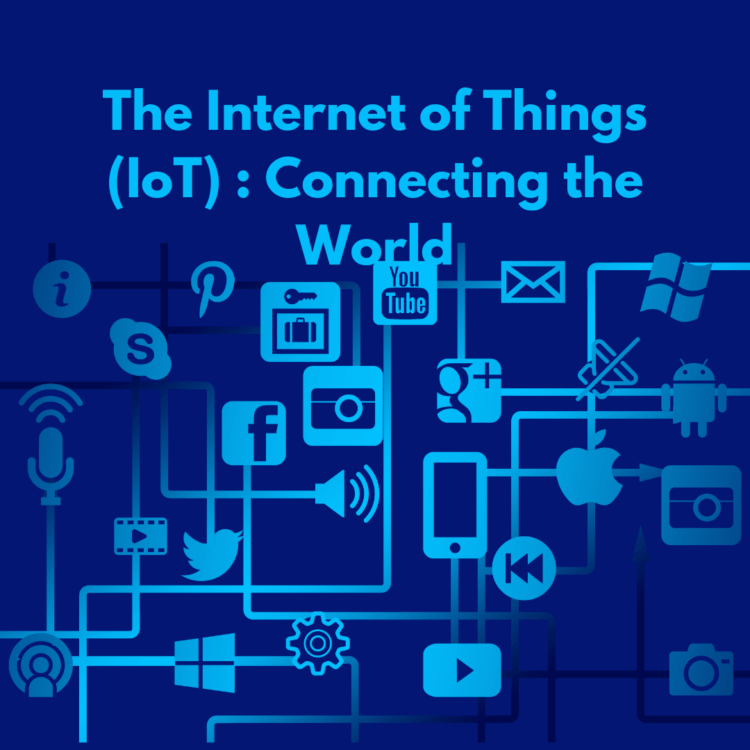The Internet of Things (IoT) is a transformative technological concept that has been connecting the world in unprecedented ways. It refers to the network of interconnected devices, objects, and systems that collect and exchange data over the internet. Here are some key aspects of how IoT is connecting the world:
Device Interconnectivity:
IoT connects a wide range of devices and objects, from everyday items like thermostats, refrigerators, and cars to industrial equipment and infrastructure. These devices are embedded with sensors, software, and connectivity capabilities, allowing them to communicate and share data.
Data Collection and Analysis:
IoT devices continuously collect data from their surroundings. This data can include environmental information, user behavior, machine performance, and more. Advanced analytics and machine learning algorithms process this data to derive insights and make informed decisions.
Improved Efficiency:
IoT is being used in various industries to improve efficiency and productivity. For example, in agriculture, IoT sensors can monitor soil conditions and weather patterns to optimize crop yield. In manufacturing, IoT-enabled machines can predict maintenance needs, reducing downtime.
Smart Cities:
IoT is a key driver of smart city initiatives. Cities deploy sensors and connected infrastructure to monitor traffic, manage energy consumption, enhance public safety, and provide real-time services to residents. This helps create more sustainable and livable urban environments.
Healthcare and Wearables:
IoT has revolutionized healthcare by enabling remote patient monitoring through wearable devices. These devices can track vital signs, medication adherence, and more, allowing for early intervention and improved patient outcomes.
Consumer Convenience:
In the consumer space, IoT devices offer convenience and automation. Smart homes feature connected thermostats, lighting systems, security cameras, and voice assistants that can be controlled remotely via smartphones.
Supply Chain Optimization:
IoT is used to track and optimize supply chains. Businesses can monitor the location and condition of products in transit, helping reduce losses due to spoilage, theft, or damage.
Environmental Monitoring:
IoT plays a crucial role in environmental monitoring and conservation. Sensors and devices are used to track air quality, water quality, wildlife movements, and other ecological factors, aiding in environmental protection efforts.
Security and Privacy:
As more devices are connected to the internet, security and privacy concerns have emerged. Ensuring the security of IoT devices and data is a significant challenge, as vulnerabilities can be exploited by malicious actors.
Interoperability:
Interoperability standards are critical to the success of IoT. Devices from different manufacturers and ecosystems need to communicate seamlessly to realize the full potential of IoT. Standards like MQTT, CoAP, and Bluetooth mesh are helping facilitate interoperability.
5G Connectivity:
The rollout of 5G networks is expected to further enhance IoT connectivity by providing faster and more reliable communication. This will enable real-time applications and support a greater number of connected devices.
Ethical and Regulatory Considerations:
The proliferation of IoT has led to discussions about ethical data use and the need for regulations to protect privacy and security. Governments and organizations are working to establish guidelines and frameworks.
In summary, the Internet of Things is revolutionizing the way we interact with and understand the world around us. It has the potential to create efficiencies, improve quality of life, and address complex challenges. However, as IoT continues to evolve and expand, addressing security, privacy, and ethical concerns will be crucial to ensuring its positive impact on society and the global interconnectedness it enables.










No Comments
Leave Comment